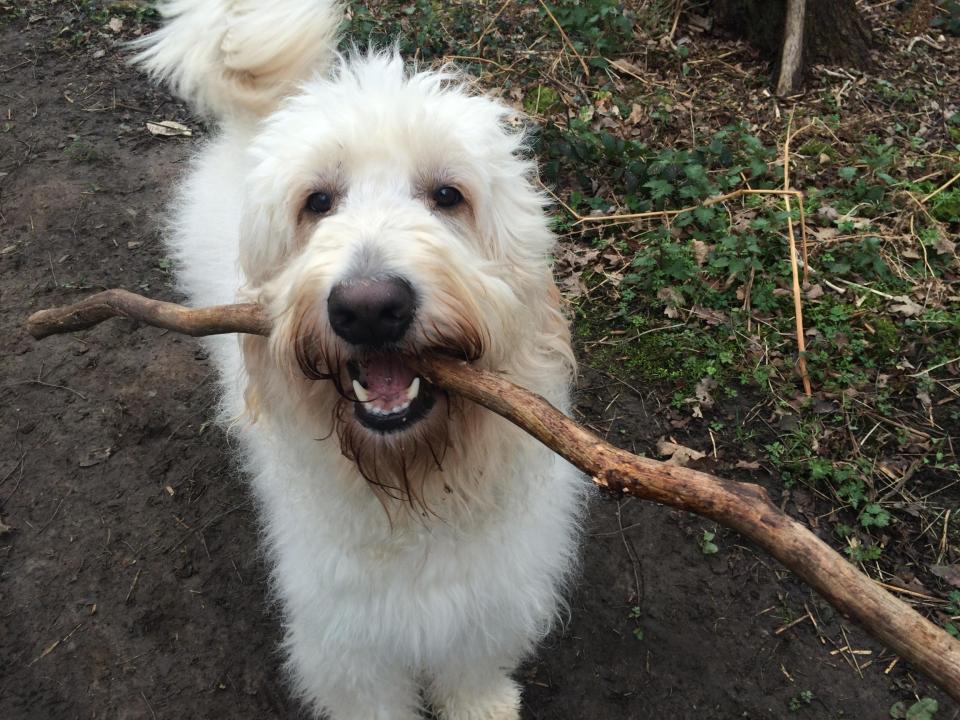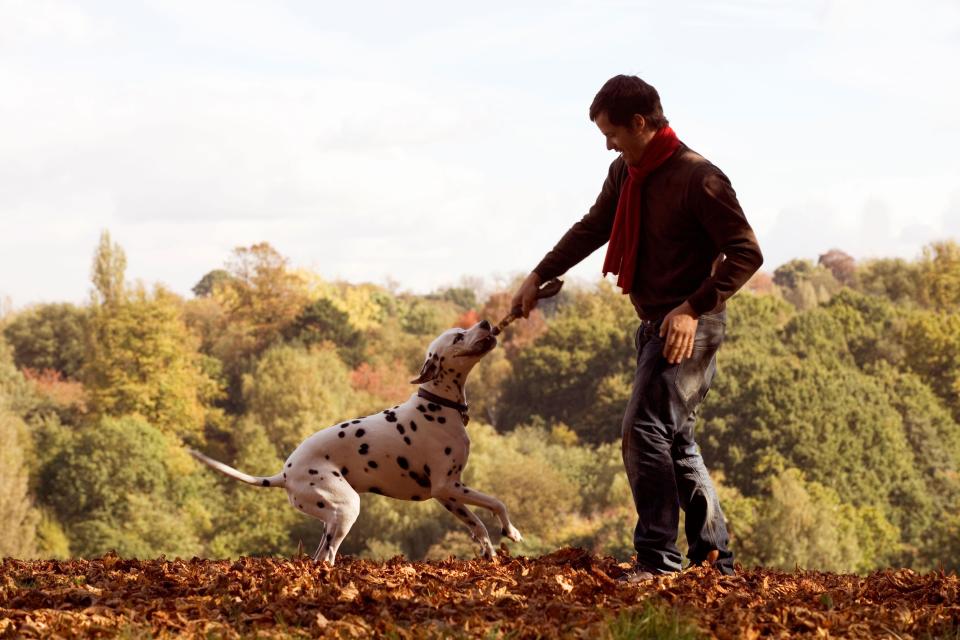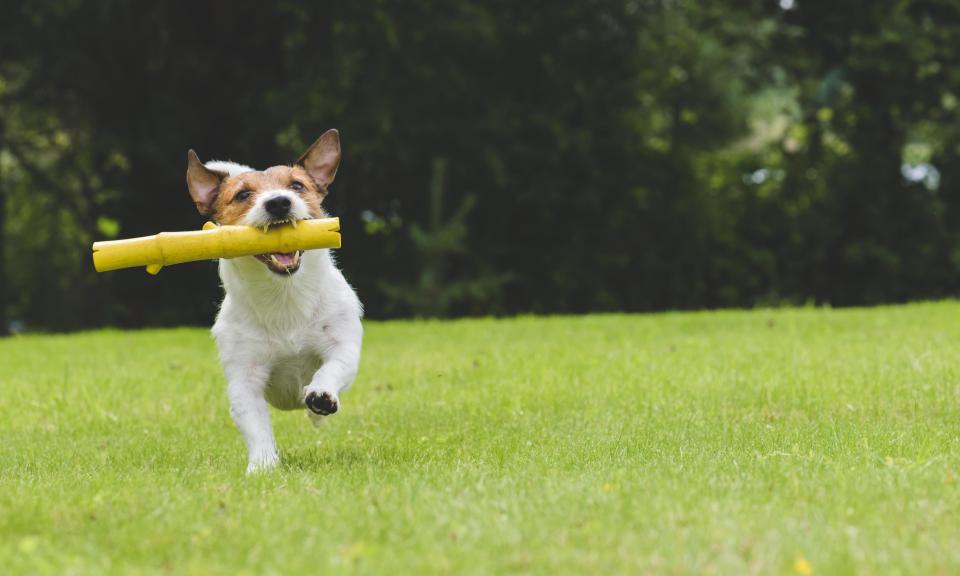Playing fetch could be harmful for dogs’ legs, researchers warn
Scientists found dogs shift their body weight onto their front legs when they are carrying balls, sticks and toys in their mouths

PLAYING fetch with your dog may be harmful to their legs, a study reveals.
Scientists found dogs shift their body weight onto their front legs when they are carrying balls, sticks and toys in their mouths.
And this can put additional strain on their joints when they run and jump – increasing the risk of injury in puppies and older pets.
Dr Barbara Bockstahler, from the University of Veterinary Medicine Vienna, warned pet owners should avoid playing fetch with heavy dog toys.
Normally dogs divide their body weight by placing 60 per cent of it on their front legs and 40 per cent on the hind legs.
[ooyala code="xyaXY0cjps4p3gcjHxDXfZn55OvKvXx8" player_id="NDcyOWI0M2YyMDdkN2YwODU5Mzc5MDUz" width="768" height="432" caption="Worst ever dog fetch attempts caught on video" auto="true"]
But when they begin to carry items in their mouth, they “see-saw” forward to compensate, meaning more weight is placed on their front paws and less on the rear.
Dr Bockstahler, a veterinary surgeon, said: “This is comparable to a human holding a weight in his hand, who slightly tilts backwards and therefore shifts his body weight to his heels.
“The additional weight is physically burdensome for them.”
She used pressure plates to measure how the body weight of Labrador dogs changed as they carried toy dummies.
[ooyala code="w4MGZpdzqLHzTGl7OU29JZ7RIGYqS1r5" player_id="NDcyOWI0M2YyMDdkN2YwODU5Mzc5MDUz" width="768" height="432" caption="Un-beer-lievable: Dog fetches lager from fridge " auto="true"]
When carrying a toy weighing around half a kilogram (1.1lbs), the weight distribution changed so they carried up to 66 per cent of their body weight on the front legs.
If the weight being carried increased up to 4kg (8.8lbs) – the same as carrying a large bird or a large branch – 75 per cent of the weight was on the front legs.
Dr Bockstahler says small items, such as tennis balls and other lightweight toys, are unlikely to be a problem.
But owners should avoid letting their pets carry heavier weights.
[ooyala code="Q0YThxeDoviId2UQxJB3Ud106tclF8JC" player_id="NDcyOWI0M2YyMDdkN2YwODU5Mzc5MDUz" width="1920" height="1080" caption="Dog's ingenious way to fetch the ball" auto="true"]
RELATED STORIES
And she said most adult dogs should be able to cope with the additional strain of playing fetch but extra care should be taken with puppies and older animals.
She said: “It is likely with the increasing speed during running or jumping, the forces acting on the joints and soft tissues will increase.
“In animals with existing joint, tendon or muscle disorders, this could have a negative effect.
“Also in young, growing animals, this could have a negative effect, especially if the weights they are carrying are heavy.
“Training should be performed carefully. It does not mean retrieving work is bad, but it must be performed with the knowledge that it puts stress on the limbs.”
The study has been published in the journal BMC Veterinary Research.
The study comes after vets last year warned dog owners against throwing sticks for their dogs to fetch.
The British Veterinary Association said its members were seeing a growing number of dogs that had been impaled by sticks they were carrying.
It said dogs could be left with “life-threatening injuries” if they fell while running with a stick in their mouth as it could be forced down their throat.
Runa Hanaghan, deputy veterinary director at the Dogs Trust, urged dog owners to supervise their dogs whenever they are carrying objects in their mouths.
She said: “This will prevent dogs carrying anything which could cause them harm and ensure they aren’t carrying anything too heavy, for prolonged periods of time.
“We encourage owners to provide their dog with toys suitable to their age, breed and lifestyle and take extra care when providing toys for young puppies, older dogs and dogs with pre-existing problems.”















